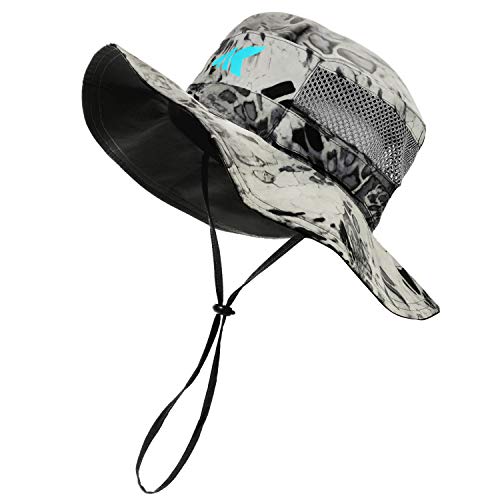Lake Trout Fishing Guide: Techniques, Tips, and Insights
Lake Trout Fishing Guide
Lake trout (Salvelinus namaycush) are one of the most prized freshwater fish in North America. Known for their impressive size, strength, and delicious flesh, they are a favorite among anglers. This guide will provide an in-depth look into everything you need to know about lake trout fishing, from identifying the species to the best techniques and equipment for a successful catch.
Identifying Lake Trout
Lake trout are easily recognizable by their dark green to grayish-brown bodies, adorned with light-colored spots. They have a deeply forked tail and a streamlined body, which contributes to their powerful swimming abilities. The average size of a lake trout ranges from 10 to 40 inches, though larger specimens can reach up to 50 inches and weigh over 50 pounds.
Habitat and Distribution
Lake trout are native to the cold, deep lakes of North America, particularly in the northern United States and Canada. They thrive in large, oligotrophic lakes with deep, cold water and rocky or gravelly bottoms. Lake trout prefer water temperatures between 40°F and 55°F, making them more common in deeper parts of lakes during the warmer months.
Seasonal Behavior and Migration Patterns
Understanding the seasonal behavior of lake trout is crucial for successful fishing. During spring, they move to shallower waters to spawn, typically in water temperatures between 39°F and 50°F. In summer, they seek deeper, cooler waters, often below the thermocline. In fall, they return to shallower areas to feed before winter, where they remain relatively inactive in deeper waters.
Best Time to Fish for Lake Trout
Spring
Spring is an excellent time for lake trout fishing as they move to shallower waters to spawn. Target rocky or gravelly shorelines and points.
Summer
During summer, focus on deeper waters and thermoclines. Early morning and late evening are the most productive times due to lower water temperatures.
Fall
Fall offers great fishing opportunities as lake trout aggressively feed to prepare for winter. Look for them in shallow to mid-depth waters near structures.
Winter
Ice fishing for lake trout can be highly rewarding. Use large jigs and live bait, and target depths of 30 to 100 feet.
Effective Fishing Techniques for Lake Trout
Trolling
Trolling is one of the most effective techniques for lake trout. Use downriggers to reach the desired depth, and employ large spoons, plugs, or dodgers paired with flies or bait.
Jigging
Jigging with heavy lures is effective, especially in deeper waters. Use vertical jigging techniques and large, flashy jigs to attract lake trout.
Live Bait Fishing
Live bait such as minnows, smelt, and shiners are highly effective for lake trout. Use a simple rig with a hook, sinker, and float, adjusting the depth according to the water conditions and fish behavior.
Ice Fishing
During winter, use large ice jigs tipped with live bait or cut bait. Fish near the bottom and use a slow jigging motion to attract lake trout.
Recommended Gear and Equipment
Rod and Reel
A medium-heavy to heavy spinning or baitcasting rod and reel combo is ideal for lake trout fishing. Choose a rod with a strong backbone to handle large fish.
Line
Use 10 to 20-pound test braided or monofilament line for its strength and sensitivity. In clear waters, a fluorocarbon leader can increase your chances of success.
Hooks and Jigs
Large hooks in sizes 1/0 to 4/0 are suitable for lake trout fishing. For jigs, use 1/2 to 2-ounce sizes, depending on the water depth and current conditions.
Bait
Live bait such as minnows, smelt, and shiners are highly effective. Large spoons, plugs, and soft plastic baits in natural colors can also work well, especially in clear waters.
Conservation and Ethical Fishing Practices
When fishing for lake trout, it’s important to practice ethical and sustainable methods. Follow local regulations regarding size and bag limits to ensure the preservation of the species. Practice catch and release for larger fish to help maintain healthy populations.
Conclusion
Lake trout fishing offers a rewarding experience for anglers of all skill levels. By understanding their behavior, habitat, and effective fishing techniques, you can increase your chances of a successful catch. Remember to follow ethical fishing practices to help preserve this valuable species for future generations. Happy fishing!
FAQs
What is the best bait for lake trout?
Live bait such as minnows, smelt, and shiners are highly effective for lake trout. Large spoons and plugs can also work well, especially in deeper waters.
What time of year is best for lake trout fishing?
Spring and fall are typically the best times for lake trout fishing, as they are more active and can be found in shallower waters. However, they can be caught year-round with the right techniques.
How deep should I fish for lake trout?
During spring and fall, fish in shallow to mid-depth waters (10 to 50 feet). In summer and winter, target deeper waters (50 to 100 feet).
What is the best technique for catching lake trout?
Trolling is one of the most effective techniques, especially when paired with downriggers to reach the desired depth. Adjust your technique based on the season and water conditions.






























